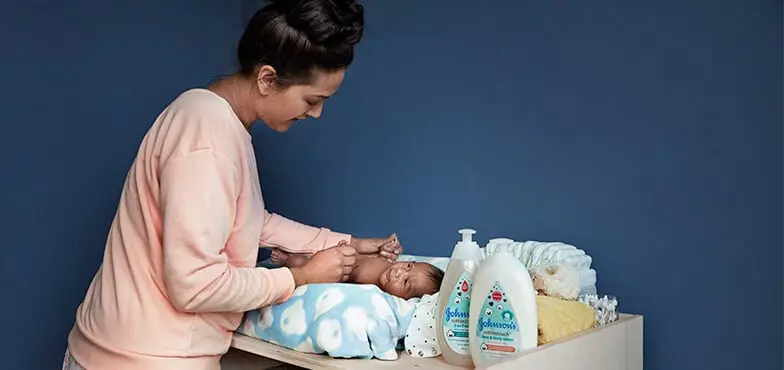Regularly massaging your baby is a way to give him much more. More bonding time. More sensory stimulation. More healthy development.
One of the most important experiences for your baby’s happy development is your loving touch. Research reveals that routine touch and massage by a parent or loving caregiver are critical to a baby’s growth, communication and learning.
Touch: Our First Language
In many ways, touch is our first language. Gentle and loving touch can help small babies grow stronger and feel less anxiety. Infants who experience routine touch show 50% more eye contact and are three times more likely to have an overall positive expression than infants who do not.
In many hospitals and birth centres, newborns are placed on the mother's chest or abdomen to give them as much skin-to-skin contact as possible. Close contact between you and your baby helps calm your baby’s breathing (another reason for the post-bath cuddle) and helps bring you emotionally close ‒ a process known as bonding or attachment.
Bonding and Other Benefits of Baby Massage
Massage is a wonderful way to help strengthen your bond. This is the key to a child’s development, as many researchers and clinicians feel that a positive maternal child bond helps to form the basis for future relationships.
In addition to helping you and your baby bond, regular massage may:
Soothe your baby and reduce his crying
Aid digestion and help relieve colic, gas and constipation
Increase daily weight gain
Enhance your baby’s adjustment to nighttime sleep, and help him sleep more deeply
Relieve nasal congestion and teething discomfort
Help develop good muscle tone, coordination and suppleness
Enhance body awareness
Boost the immune system
Improve skin texture
Help calm and relax both you and your baby
Boost your confidence in handling your baby
Baby Science!
In addition to skin-to-skin contact, research has shown routine touch and massage leads to improved cognitive performance and increased alertness and attentiveness in children. Yet, according to the JOHNSON’S® Global Bath Time Report, only 23% of parents around the world say that massages can be extremely important to their child’s brain development!
Your touch contributes to your baby’s first emotional bonds. This contact helps build a foundation for emotional and intellectual development later in life. So the next time you give your baby a massage after his bath, know this act of love means more to his development and can have a lasting positive impact.
The History of Massage
Massage therapy is one of the oldest forms of treatment, with evidence of its use in China, India, and Egypt over 2000 years ago
Hippocrates defined medicine as “the art of rubbing” in 400 BC
Decline of massage therapy in Western medicine coincided with the pharmaceutical revolution of the 1940s

Building a Bond
BabyCenter® shares how the love between you and your baby develops as he grows.
We are committed to working with moms, healthcare experts and scientists to ensure our products continue achieving the highest standards in safety, quality and care.

